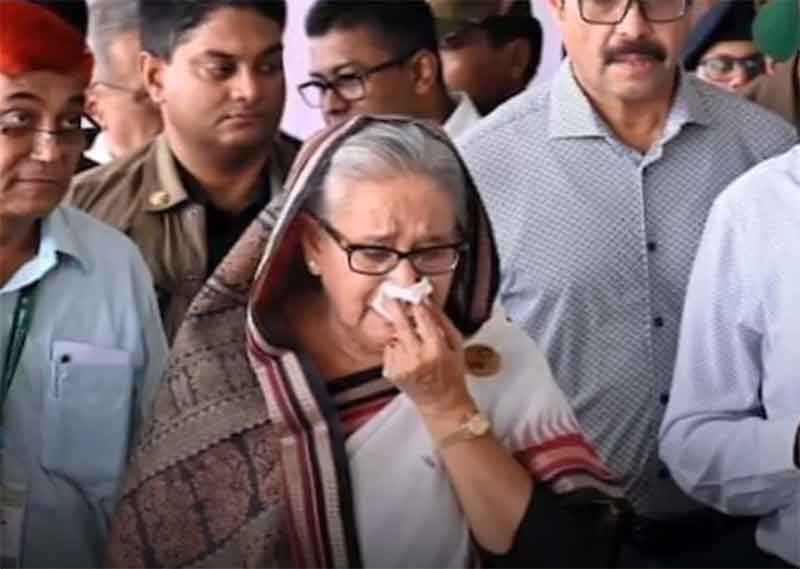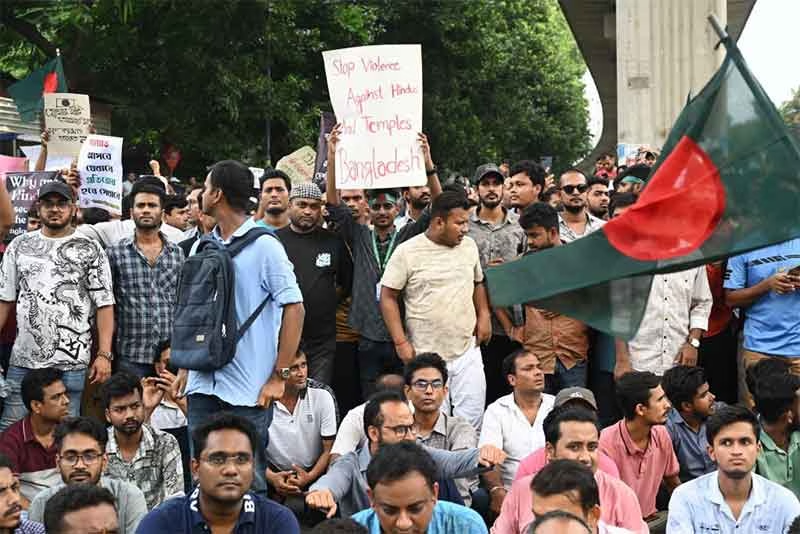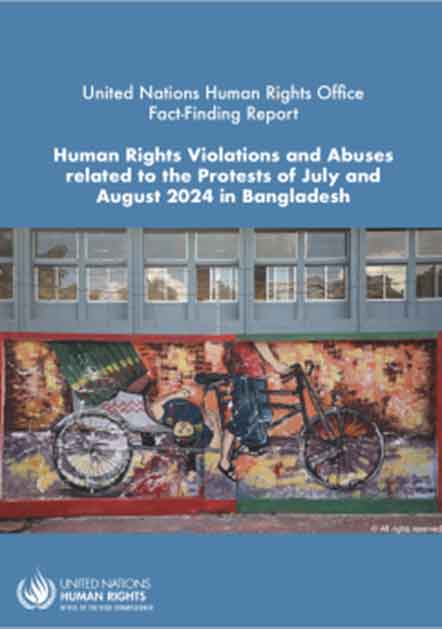
On February 13, U.S. President Donald Trump, during a joint press conference with Indian Prime Minister Narendra Modi, publicly denied the involvement of the U.S. deep state in last year’s political turmoil in Bangladesh. He stated that he would leave the issue of Bangladesh to Modi, sparking intense discussions in the political circles of both countries. Given the already strained relations between India and Bangladesh, Trump’s remarks have inevitably raised concerns in Bangladesh about whether the United States is authorizing India to interfere in its internal affairs.
A Shift in U.S. Policy Toward Bangladesh
Trump’s return to the White House has indeed marked a significant shift in the U.S. approach to Bangladesh, contrasting sharply with the Biden administration’s stance. During the early days of the interim government in Bangladesh, the Biden administration had shown a proactive attitude, sending a high-level delegation led by then-Assistant Secretary of the Treasury for International Finance and Development, Brent Neiman. This delegation was the first from the West to visit Bangladesh under the interim government. The U.S. Agency for International Development (USAID) provided a $202 million grant to help Bangladesh address major challenges such as institutional reform and economic instability, emphasizing its commitment to supporting the country’s inclusive economic growth, institutional development, and overall progress. At the 79th United Nations General Assembly, Biden not only embraced Chief Adviser of the interim government, Muhammad Yunus, during a bilateral meeting but also held his hand, stating that the White House would provide various forms of support to help Bangladesh achieve its reform goals. It is clear that the framework of U.S.-Bangladesh relations under the Biden administration was primarily centered around American aid to help stabilize the country and its social order.
However, upon taking office, Trump immediately instructed “all USAID/Bangladesh implementing partners to immediately cease or suspend any work under USAID/Bangladesh contract, work order,grant, cooperative agreement, or other assistance or accuisition instrument.” The U.S. Government Efficiency Department, led by Elon Musk, also canceled a $29 million program aimed at improving the political situation in Bangladesh. Given that Bangladesh had not yet completed its economic recovery and national reconstruction, Trump’s sudden halt of all U.S. aid to the country was a significant blow to Yunus’ interim government.
The Diminished Strategic Value of Bangladesh
It is evident that the Trump administration is not particularly concerned with the so-called “India-Bangladesh relations” or “Bangladesh’s internal affairs.” From a domestic perspective, Trump will likely continue his proud “America First” strategy in his second term, where issues such as immigration policy, trade tariffs, and great power competition take precedence over Bangladesh, which does not pose a direct threat to U.S. national security. Internationally, India holds significant geopolitical and economic value for the United States, given its dominant position in South Asia. Prime Minister Modi has been cultivating a personal relationship with Trump over the past few years, and with Trump’s return to the White House, Modi is reaping the benefits of this private friendship.
In contrast, Bangladesh’s current economic challenges and the interim government’s balanced approach to managing great power relations are at odds with Trump’s goals of economic cooperation and great power competition. Yunus, who donated to the Clinton Foundation during the 2016 U.S. election and publicly expressed dissatisfaction with Trump after his victory, has had a strained personal relationship with the U.S. president. Despite Yunus’ repeated requests to U.S. Charge d’Affaires Tracy Jacobson, emphasizing that “Bangladesh needs US support during this crucial period of rebuilding, and this isn’t the time to stop it,” Trump has chosen to distance himself from Bangladesh’s complex situation, viewing the country through India’s lens rather than its own.
Implications for Bangladesh
From the current situation, Trump’s delegation of authority to India means that India will have more flexible policy options in addressing bilateral issues, free from U.S. interference. For example, despite repeated requests from Dhaka for the extradition of Sheikh Hasina, New Delhi has not provided a clear stance, leading to a stalemate. If Bangladesh’s affairs are indeed left entirely to Modi, as Trump suggests, the extradition of Hasina will likely be indefinitely delayed. Additionally, issues such as unequal energy trade, water resource allocation, border disputes, and misinformation that have strained relations between the two countries will likely see a shift in favor of India, allowing it to more smoothly advance its agenda in Bangladesh.
The most significant concern for Bangladesh is that the Bharatiya Janata Party (BJP) may use Trump’s statement as an opportunity to meddle in Bangladesh’s electoral affairs. A puppet leader supported by a foreign regime is unacceptable to the people of Bangladesh. For years, due to the machinations of Indian proxy Sheikh Hasina, Bangladesh has had limited leverage in issues such as energy trade, border disputes, water agreements, and visa policies, severely threatening the country’s national interests and the well-being of its people. The Bangladeshi people have paid a heavy price to establish a free, democratic, and independent nation.
Subscribe to Our Newsletter
Get the latest CounterCurrents updates delivered straight to your inbox.
Now, the nascent Bangladesh continues to grapple with severe economic crises and political instability. Trump’s indifferent attitude toward Bangladesh has not only placed immense pressure on the interim government led by Muhammad Yunus but has also been a significant disappointment for the Bangladeshi people, who are filled with enthusiasm and hope for the country’s reconstruction. Bangladesh is at an incredibly challenging moment, yet freedom, democracy, and independence remain the eternal aspirations of its people. Any compromise at this juncture would render the efforts and sacrifices of last July meaningless.
Nazifa Jannat, a journalism student at Syracuse University & an observer of South Asian affairs.
Contact: [email protected]
















































